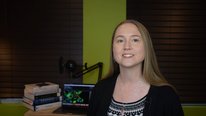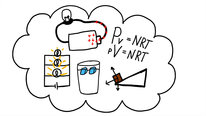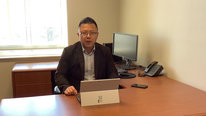- Brooke Whitworth
- http://www.brookewhitworth.com
- Associate Professor of Science Education
- Presenter’s NSFRESOURCECENTERS
- Clemson University
- Whitney Jackson
- Professional Development Coordinator
- Presenter’s NSFRESOURCECENTERS
- University of Mississippi
- Julie James
- https://www.researchgate.net/profile/Julie-James-9
- Assistant Director of Professional Learning
- Presenter’s NSFRESOURCECENTERS
- University of Mississippi
- Alice Steimle
- Director of CMSE
- Presenter’s NSFRESOURCECENTERS
- University of Mississippi
- Shelby Watson
- Graduate Research Fellow
- Presenter’s NSFRESOURCECENTERS
- University of Mississippi
Building Content Knowledge of Elementary Teachers of Science (BuCKETS)
NSF Awards: 1833147
2022 (see original presentation & discussion)
Undergraduate
The Building Content Knowledge of Elementary Teachers of Science (BuCKETS) Project is an IUSE: EHR Exploration and Design Tier for Engaged Student Learning project that works to bridge the gap between research, best practices, and curricular supports in the undergraduate physics classroom at the University of Mississippi. It was initially designed for preservice elementary teachers (PSETs), but expanded to support the learning of all non-science major undergraduates. BuCKETS seeks to provide robust learning experiences for undergraduates that result in: 1) increasing content knowledge (CK) in science, 2) increasing science pedagogical content knowledge (PCK), and 3) changing teaching practices related to non-major science undergraduates.
Related Content for Building Undergraduate Physics Content Knowledge
-
 2019CLASS: A web-based assessment tool to calibrate learning
2019CLASS: A web-based assessment tool to calibrate learning
Jason Jones
-
 2018Teaching about Earth for a Sustainable Future: The InTeGrate
2018Teaching about Earth for a Sustainable Future: The InTeGrate
Cathryn Manduca
-
 2021Experiment-centric Pedagogy in STEM During COVID-19 Pandemic
2021Experiment-centric Pedagogy in STEM During COVID-19 Pandemic
Oludare Owolabi
-
 2020Improving Biomolecular Visualization Instruction
2020Improving Biomolecular Visualization Instruction
Kristen Procko
-
 2022Identifying and building on students’ conceptual resources
2022Identifying and building on students’ conceptual resources
Amy Robertson
-
 2019Project DIRACC
2019Project DIRACC
Fabio Milner
-
 2019The Malate Dehydrogenase CUREs Community (MCC) Project
2019The Malate Dehydrogenase CUREs Community (MCC) Project
Ellis Bell
-
 2021Measuring PCK of Questioning in introductory physics classes
2021Measuring PCK of Questioning in introductory physics classes
Jianlan Wang





Brooke Whitworth
Associate Professor of Science Education
Welcome to the BuCKETS project! We are excited to share how we developed and implemented a physics course for elementary preservice teachers. We are nearing the end of our project and would love to learn where viewers think we should go next with this work.
Laura Zangori
Hi Brooke,
Thank you for sharing your focus on supporting PSTs physics knowledge! I love your focus on both the PSTs plus the instructor's PCK knowledge. Will you be following your PSTs into the classroom and see what kinds of impact this kind of content knowledge building course has on their science teaching?
Thanks for sharing!
Laura
Brooke Whitworth
Associate Professor of Science Education
Hi Laura,
Thanks for watching! We would love to follow them, but right now there are no plans to do so as the project was only for three years. However, that's a GREAT idea for future steps. Thanks for taking the time to watch!
patrick honner
Teacher
It's exciting to see teacher training programs take advantage of their opportunities to change pre-service teachers' attitudes about both content and pedagogy! Hopefully these transformative experiences will be transmitted to their students down the line. I imagine finding the right faculty can be a challenge for programs like this. Can you talk a little about where your faculty came from? Were they university faculty who were already engaged in this kind of teaching, or were they instructors with deep K-12 classroom experience?
Whitney Jackson
Professional Development Coordinator
Hi Patrick,
It is true, as in all courses, that the right faculty makes all the difference. For this project, the Physics faculty member who chose to work with BuCKETS had already begun incorporating more collaborative discourse in his instruction. He did work closely with the project lead, Dr. Brooke Whitworth, and engaged in several hours of PD related specifically to the Making Sense of Science course material. As the project concludes, he has shared several aspects of the course he will be adopting in the future, which is a good sign from our point of view!
We appreciate that you have an interest in our project. Thanks for watching and commenting!
patrick honner
Rebecca Vieyra
Associate Director of Global Initiatives
Hi, Brooke and team!
It was so inspiring to hear how these pre-service teachers' attitudes about science have changed over their lifetime (and, it's definitely a bit of an added bonus to see students finding new passions and going into secondary science as well).
As someone involved in physics education myself, I'm curious to know a few things:
patrick honner
Alice Steimle
Director of CMSE
Hi Rebecca! Thank you for the post and great questions. I will address the second question. When our center began in 2006, we realized through various means that Elementary Education Majors were lacking content knowledge for teaching mathematics. So we began a collaboration with the math department to begin teaching the Mathematics for Elementary Education Majors courses (2 course sequence) in a way that provided the pre-service teachers (PSTs) not only the mathematics content knowledge but also the pedagogical content knowledge for teaching mathematics. The courses were taught through problem solving and allowed PSTs to learn the content while the instructors/faculty utilized appropriate, research-based methods for teaching the content. We wanted our PSTs to be well prepared to teach science as well. We approached a couple of the science departments on campus, and the physics department seemed most interested at the time of the grant as they had a visiting professor who was interested in physics education. Our university is also going through several initiatives to revise STEM education for non-STEM majors through active learning opportunities and course revisions. These events happened to align, and we were able to reserve a section of the physics course for elementary education majors during the second year of the project.
Rebecca Vieyra
patrick honner
Rebecca Vieyra
Associate Director of Global Initiatives
Thanks for the response! It sounds like the stars aligned just right!
(Is there someone else on the team who might be able to answer my first question? It is a genuine curiosity!)
Brooke Whitworth
Associate Professor of Science Education
Hi Rebecca,
Sorry for the delay in response! It’s graduation and grading week here. I think our approach is actually very similar to these two but is more aligned with NGSS and what we see in the K-12 classroom. We worked with WestEd’s Making Sense of Science which develops professional learning curricula and student curricula for K12. Our thinking was it would help future teachers anticipate what teaching 3D might look like and to experience that type of teaching as many had not been taught in that way. In addition, we hoped that eventually it might also be a means for working with all undergraduates. It does focus on developing conceptual understanding through science practices but emphasizes cross-cutting concepts and scientific literacy. Let us know if we can answer more questions!
Alexander Rudolph
Professor
Great project and video! Your project is very reminiscent of a similar project we instituted in our physics for future teachers at Cal Poly Pomona some years ago. It had a similar combined lecture/lab approach and also tried to connect the science to the age-appropriate learning goals that elementary school teachers have. As for future directions, I would like to see someone collect information about these types of projects together and publish some kind of analysis of the similarities and differences and evaluating outcomes so that the best practices in this area can be further disseminated to the larger university audience. Overall, nice video and project.
Alice Steimle
Brooke Whitworth
Associate Professor of Science Education
Thank you! This is an excellent idea and definitely good food for thought!
Kathy Huncosky
Hi Brooke,
I really enjoyed watching your video and seeing how things ended up playing out in your project. Your results are very impressive! It sounds like the students are benefitting greatly from the teaching approach — which really isn't a surprise. Thank you for doing the work that your do and for inspiring our next generation of science teachers.
Kathy
Brooke Whitworth
Associate Professor of Science Education
Thanks, Kathy! I am sure that your work with Making Sense of Science played into much of these results. Thank you for your indirect contributions and for taking the time to watch! Hope to see you soon!
Leah Wiitablake
I love the active learning approach with the integration of lecture and lab. Being student-centered is SO important! And you can really tell it was implemented well by the quotes. I especially love the one person who said they can now "see the bright side of science"!
Brooke Whitworth
Brooke Whitworth
Associate Professor of Science Education
Thank you, Leah! That was one of our favorite quotes too!
Lauren Bauman
Very cool project! I enjoyed your video, particularly hearing from students who were very deeply impacted by your work. Has the program been equally successful with expanding to other non-science majors as preservice elementary teachers? Were there changes you made to the program when applied to other non-science majors? I'd also be interested to know more about how the program has impacted preservice teachers' classroom practises (for example, if the teachers who participated in the program are more likely to use more active learning methods in their science classes). I would imagine this may be not easy to measure, but it is exciting to consider the widespread impacts that extend beyond the class instructors and preservice teachers to all the students they go on to teach!
Brooke Whitworth
Brooke Whitworth
Associate Professor of Science Education
We are finishing up collecting data from a non PST cohort and are excited to see the results. We think we will similar content gains but perhaps not the same excitement for science. We did not change anything else about the program when we did it with all undergrads so it will be interesting to see the differences.
We would love to be able to measure practice changes in the PSTs but sadly since most were freshmen it would be beyond the scope and length of the project. But, definitely something for us to consider and perhaps look at pursuing in the future!
Further posting is closed as the event has ended.